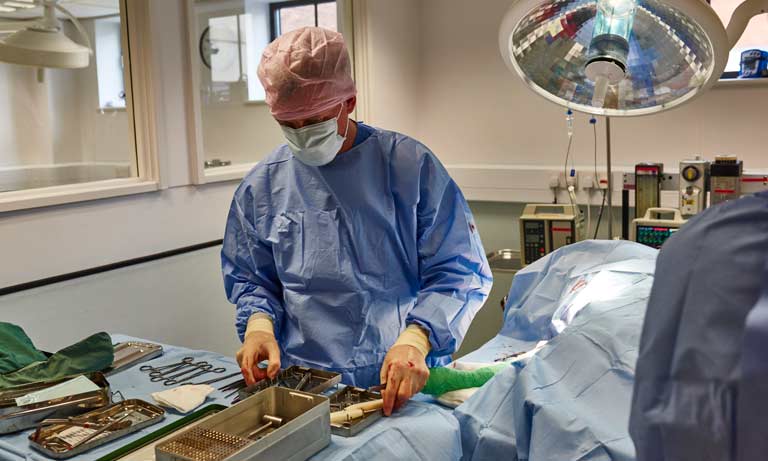The veterinary voice for animal welfare: reflecting on BVA’s updated Animal Welfare Strategy
11 Jul 2025
26 Jul 2024 | Malcolm Morley
This year, a new salary threshold for overseas vets entering the UK was introduced. BVA Senior Vice President Malcolm Morley discusses these changes and the implications on the profession.

The 12 March 2024 is a date I won't easily forget. Early that morning, I’d been on BBC Radio 4’s Today talking about the Competition and Markets Authority’s (CMA) findings of its review into the UK vet services market for household pets and in Parliament, I was giving evidence to the Environment and Rural Affairs (EFRA) Select Committee about whether the UK has a sufficient pipeline of newly qualified vets; how successful we are at retaining them; and what factors are driving UK vets to leave the profession, or to work overseas.
As I spoke to the Select Committee about the particular challenges faced in remote and rural practice, I never imagined that just two days later, Tom Pursglove, the then Minister of State for Legal Migration and the Border, would introduce another unforeseen barrier to overseas vets working in the UK, saying, "Migration is far too high, which is why we are introducing a package of measures which will deliver the biggest ever cut to migration over the course of this year."
The veterinary profession had anticipated a new salary threshold would be introduced at the beginning of April, requiring sponsoring employers to pay skilled workers at least £38,700 to receive a work visa. However, we were unexpectedly faced with a higher threshold of £48,100 for vets. These changes took effect on 4 April 2024.
What does this mean for vets?
In most cases, an employer wanting to sponsor an overseas vet coming to the UK must now demonstrate that they are paying a salary of at least the "standard going rate", of £48,100 for a 37.5hr working week, with the salary adjusted upwards if working hours are longer. This is monthly salary only and bonuses or overtime should not be included. There are some limited exceptions for "new entrants" and those who qualify for a "lower going rate". "New entrants" have a reduced salary threshold of £33,390 but to meet that definition they must meet one of the following criteria:
There is also a "lower going rate" for those already working in the UK who received a skilled worker visa before these changes came into effect. For those vets, the salary threshold is reduced to £39,600 or £27,720 if they also qualify as new entrants.
While BVA welcomes an increase in veterinary salaries, recognising the need for appropriate remuneration for our skilled roles, the substantial rise in salary requirements for sponsoring visa applicants is likely to cause significant disruption for all veterinary employers. We still heavily rely on overseas vets, who play a crucial role in our workforce. The new salary requirements will probably mean that only those under 26 or with significant experience are likely to come to the UK.
The EFRA select committee heard that the number of EU vets registering in the UK remains significantly lower than pre-Brexit levels and there is still an urgent need for overseas vets while UK training capacity is being expanded. BVA has raised concerns about the £48,100 minimum annual salary threshold with parliamentarians in both houses and along with RCVS we have suggested a reduction to £38,700. We have written to both Defra and the Home Office, asking them to reconsider these requirements to ensure the UK's veterinary workforce is not compromised. As the new Government settles in, we will continue to engage press on the issue and work with our colleagues across the veterinary profession and industry to develop appropriate salary thresholds and address the broader challenges facing the veterinary workforce.
Get tailored news in your inbox and online, plus access to our journals, resources and support services, join the BVA.
Join Us Today